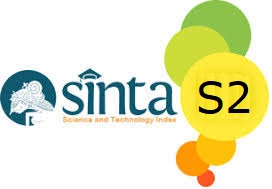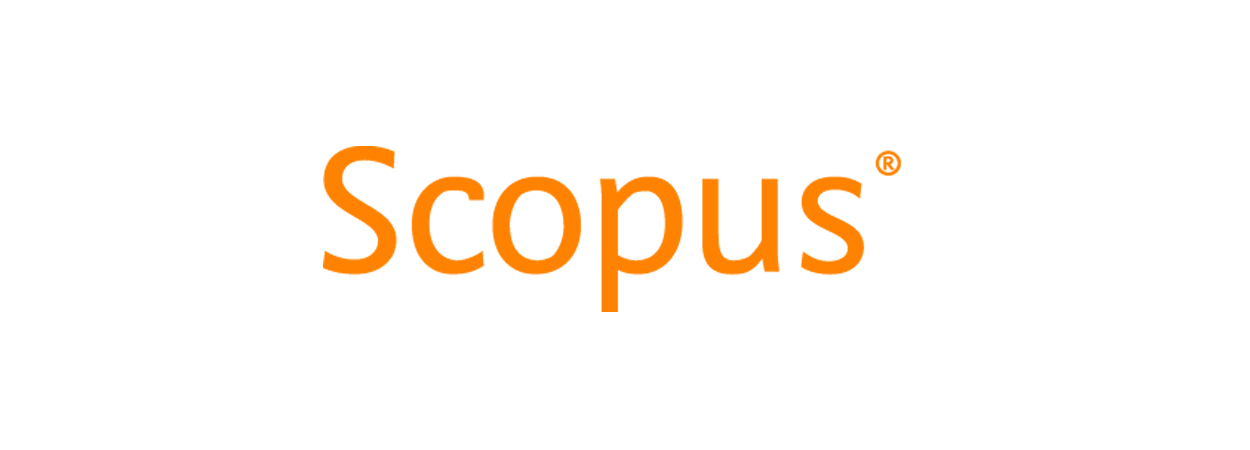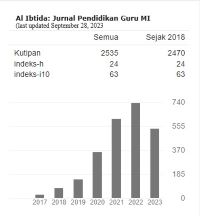Need Analysis of Digital Microlearning Materials with Scaffolding for Generation Z Pre-Service Teachers in Islamic Primary Education
(1) Universitas Islam Negeri Maulana Malik Ibrahim Malang
(2) Universitas Islam Negeri Maulana Malik Ibrahim Malang
(3) Universitas Islam Negeri Maulana Malik Ibrahim Malang
(4) Universitas Islam Negeri Maulana Malik Ibrahim Malang
(5) Universitas Islam Negeri Maulana Malik Ibrahim Malang
(*) Corresponding Author
Abstract
Abstract
This study aims to analyze the need for digital teaching materials based on microlearning with scaffolding to support Generation Z pre-service elementary school teachers. The research method used was a quantitative descriptive survey, with data collected through an online questionnaire filled out by 216 Generation Z students, pre-service teachers in the Madrasah Ibtidaiyah Education Study Program (PGMI) at UIN Maulana Malik Ibrahim Malang, Indonesia. The study results indicate that most students have adequate access to digital devices and the internet and a strong preference for the blended learning method. Students also prefer short and interactive video-based teaching materials, which support flexibility in arranging time and place of study. These findings emphasize the importance of developing microlearning teaching materials for the characteristics of the digital native generation. Scaffolding is identified as a supportive approach in compiling microlearning-based teaching materials. Therefore, it can provide gradual guidance that helps students understand the material more deeply. All in all, this study provides insight into developing teaching materials that are adaptive, effective, and in line with learning needs in the digital era.
Keywords: microlearning, scaffolding, Gen Z.
Abstrak
Penelitian ini bertujuan untuk menganalisis kebutuhan bahan ajar digital berbasis microlearning dengan scaffolding untuk mendukung calon guru SD Generasi Z. Metode penelitian yang digunakan adalah survei deskriptif kuantitatif, dengan data dikumpulkan melalui kuesioner daring yang diisi oleh 216 mahasiswa Generasi Z calon guru Program Studi Pendidikan Guru Madrasah Ibtidaiyah UIN Maulana Malik Ibrahim Malang, Indonesia. Hasil penelitian menunjukkan bahwa sebagian besar mahasiswa memiliki akses yang memadai terhadap perangkat digital dan internet serta preferensi yang kuat terhadap metode blended learning. Mahasiswa juga lebih menyukai bahan ajar berbasis video yang singkat dan interaktif, yang mendukung fleksibilitas dalam mengatur waktu dan tempat belajar. Temuan ini menekankan pentingnya pengembangan bahan ajar microlearning bagi karakteristik generasi digital native. Scaffolding diidentifikasi sebagai pendekatan yang suportif dalam menyusun bahan ajar berbasis microlearning. Dengan demikian, scaffolding dapat memberikan bimbingan bertahap yang membantu mahasiswa memahami materi lebih dalam. Secara keseluruhan, penelitian ini memberikan wawasan tentang pengembangan bahan ajar yang adaptif, efektif, dan sejalan dengan kebutuhan pembelajaran di era digital.
Kata kunci: pembelajaran mikro, scaffolding, Gen Z.Full Text:
PDFReferences
Al-araibi, A. A. M., Naz’ri bin Mahrin, M., Yusoff, R. C. M., & Chuprat, S. B. (2019). A model for technological aspect of e-learning readiness in higher education. Education and Information Technologies, 24(2), 1395–1431.
Alias, N. F., & Abdul Razak, R. (2023). Exploring The Pedagogical Aspects of Microlearning in Educational Settings: A Systematic Literature Review. Malaysian Journal of Learning and Instruction (MJLI), 20(2), 267–294. https://doi.org/10.32890/mjli2023.20.2.3
Alruthaya, A., Nguyen, T.-T., & Lokuge, S. (2021). The Application of Digital Technology and the Learning Characteristics of Generation Z in Higher Education (arXiv:2111.05991). arXiv. http://arxiv.org/abs/2111.05991
Amelia, R. (2021a). Development of web e-scaffolding based on scientific explanation as teaching materials for primary school pre-service teachers. Al Ibtida: Jurnal Pendidikan Guru MI, 8(2), 144–160.
Amelia, R. (2021b). The influence of e-scaffolding in blended learning on prospective teacher’s scientific explanation. Journal of Physics: Conference Series, 1796(1), 012039.
Belkaisse, M., & Manel, B. (2023). Investigating Students’ Use of Micro-Learning on TikTok Mobile Application to Improve Their English Pronunciation Case Study: Undergraduate English Language Students at Abdelhafid Boussouf University Center of Mila [PhD Thesis, University Center of Abdel Hafid Boussouf Mila]. http://dspace.centre-univ-mila.dz/jspui/handle/123456789/2502
Bhalla, R., Tiwari, P., & Chowdhary, N. (2021). Digital Natives Leading the World: Paragons and Values of Generation Z. In N. Stylos, R. Rahimi, B. Okumus, & S. Williams (Eds.), Generation Z Marketing and Management in Tourism and Hospitality (pp. 3–23). Springer International Publishing. https://doi.org/10.1007/978-3-030-70695-1_1
Bouilheres, F., Le, L. T. V. H., McDonald, S., Nkhoma, C., & Jandug-Montera, L. (2020). Defining student learning experience through blended learning. Education and Information Technologies, 25(4), 3049–3069. https://doi.org/10.1007/s10639-020-10100-y
Cahyanto, B., Rini, T. A., Salamah, E. R., & Rohmad, M. A. (2024). Microlearning Instructional Design with Process Approach for Improving Early Reading Skills of Prospective Elementary School Teachers. Al Ibtida: Jurnal Pendidikan Guru MI, 11(2), 373–385.
Chicca, J., & Shellenbarger, T. (2018). Generation Z: Approaches and teaching–learning practices for nursing professional development practitioners. Journal for Nurses in Professional Development, 34(5), 250–256.
Clarin, A. S., & Baluyos, E. L. (2022). Challenges encountered in the implementation of online distance learning. EduLine: Journal of Education and Learning Innovation, 2(1), 33–46.
Dolasinski, M. J., & Reynolds, J. (2020). Microlearning: A new learning model. Journal of Hospitality & Tourism Research, 44(3), 551–561.
Dwinggo Samala, A., Bojić, L., Bekiroğlu, D., Watrianthos, R., & Hendriyani, Y. (2023). Microlearning: Transforming education with bite-sized learning on the go—insights and applications. International Journal of Interactive Mobile Technologies (iJIM), 17(21). https://rifdt.ifdt.bg.ac.rs/handle/123456789/3231
Estelami, H. (2015). The Effects of Survey Timing on Student Evaluation of Teaching Measures Obtained Using Online Surveys. Journal of Marketing Education, 37(1), 54–64. https://doi.org/10.1177/0273475314552324
Gabrielli, S., Kimani, S., & Catarci, T. (2017). The design of microlearning experiences: A research agenda (on microlearning). http://ir.jkuat.ac.ke/handle/123456789/3157
Ghafar, A. (2020). Convergence between 21st century skills and entrepreneurship education in higher education institutes. In International Journal of Higher Education (Vol. 9, Issue 1, pp. 218–229). https://doi.org/10.5430/ijhe.v9n1p218
Gill, A. S., Irwin, D., Towey, D., & Zhang, Y. (2024). Mobile Microlearning to Scaffold Project-Based Learning Using ARCS Model: A Preliminary Study. 2024 IEEE 48th Annual Computers, Software, and Applications Conference (COMPSAC), 411–420. https://ieeexplore.ieee.org/abstract/document/10633413/
Giurgiu, L. (2017). Microlearning an evolving elearning trend. Scientific Bulletin, 22(1), 18–23.
Huang, J. (2020). Successes and Challenges: Online Teaching and Learning of Chemistry in Higher Education in China in the Time of COVID-19. Journal of Chemical Education, Query date: 2020-09-27 20:10:22. https://doi.org/10.1021/acs.jchemed.0c00671
Ichiuji, B. A., DeAngelis, E. J., Corpodean, F., Thompson, J., Arsenault, L., Vaziri, K., Lee, J., & Jackson, H. T. (2021). The Effect of a Microlearning Module on Knowledge Retention in Surgery Clerkship Students. Journal of the American College of Surgeons, 233(5), S218–S219.
Inan, F. A., Flores, R., Ari, F., & Arslan-Ari, I. (2011). Towards individualized online learning: The design and development of an adaptive web based learning environment. Journal of Interactive Learning Research, 22(4), 467–489.
Javorcik, T., Kostolanyova, K., & Havlaskova, T. (2023). Microlearning in the education of future teachers: Monitoring and evaluating students’ activity in a microlearning course. Electronic Journal of E-Learning, 21(1), 13–25.
Kadhem, H. (2017). Using mobile-based micro-learning to enhance students; retention of IT concepts and skills. 2017 2nd International Conference on Knowledge Engineering and Applications (ICKEA), 128–132.
Khong, H. K., & Kabilan, M. K. (2022). A theoretical model of micro-learning for second language instruction. Computer Assisted Language Learning, 35(7), 1483–1506. https://doi.org/10.1080/09588221.2020.1818786
Krasnova, T., Kouznetsova, A., Ovsyannikova, М., & Loginova, A. (2023). MICROLEARNING FOR GENERATION Z IN THE FOREIGN LANGUAGE CLASSROOM. EDULEARN23 Proceedings, 987–996.
Lee, Y.-M. (2023). Mobile microlearning: A systematic literature review and its implications. Interactive Learning Environments, 31(7), 4636–4651.
Lee, Y.-M., Jahnke, I., & Austin, L. (2021). Mobile microlearning design and effects on learning efficacy and learner experience. Educational Technology Research and Development, 69(2), 885–915.
Lissitsa, S., & Kol, O. (2016). Generation X vs. Generation Y–A decade of online shopping. Journal of Retailing and Consumer Services, 31, 304–312.
Mohammed, G. S., Wakil, K., & Nawroly, S. S. (2018). The effectiveness of microlearning to improve students’ learning ability. International Journal of Educational Research Review, 3(3), 32–38.
Monib, W. K., Qazi, A., Apong, R. A., & Mahmud, M. M. (2024). Investigating learners’ perceptions of microlearning: Factors influencing learning outcomes. IEEE Access. https://ieeexplore.ieee.org/abstract/document/10703055/
Mousa, A. H., Aldeen, Z. N., Nasir, I. S., & Hamdi, R. S. (2020). Measuring readiness of higher education institutes towards adopting e-learning using the technology acceptance model. Context, 4, 10.
Pan, H. (2020). A Glimpse of University Students’ Family Life Amidst the COVID-19 Virus. Journal of Loss & Trauma, 25(6–7), 1–4. https://doi.org/10.1080/15325024.2020.1750194
Sachdeva, N. (2023). Designing Evidence-Informed Microlearning for Graduate-Level Online Courses [PhD Thesis, University of Toronto (Canada)]. https://search.proquest.com/openview/1e57d03614ebc43aa1d1cac9d42ea4c7/1?pq-origsite=gscholar&cbl=18750&diss=y
Senandheera, V. V., Muthukumarana, C. K., Ediriweera, D. S., & Rupasinghe, T. P. (2024). Impact of microlearning on academic performance of students in higher education: A systematic review and meta-analysis. Journal of Multidisciplinary & Translational Research, 9(1), 10–25. https://doi.org/10.4038/jmtr.v9i1.2
Shatte, A. B., & Teague, S. (2020). Microlearning for improved student outcomes in higher education: A scoping review. https://osf.io/preprints/fhu8n/
Sugiarto, A. M. A., & Seli, F. Y. (2023). An Analysis of Students’ and Teachers’ Needs of Microlearning-Based Learning Materials for English in Senior High School. PEDAGOGIC: Indonesian Journal of Science Education and Technology, 3(1), 26–39.
Sung, Y.-T., Chang, K.-E., & Liu, T.-C. (2016). The effects of integrating mobile devices with teaching and learning on students’ learning performance: A meta-analysis and research synthesis. Computers & Education, 94, 252–275.
Wang, C., Bakhet, M., Roberts, D., Gnani, S., & El-Osta, A. (2020). The efficacy of microlearning in improving self-care capability: A systematic review of the literature. Public Health, 186, 286–296.
DOI: 10.24235/al.ibtida.snj.v12i1.18811
Article Metrics
Abstract view : 43 timesPDF - 3 times
Refbacks
- There are currently no refbacks.
Copyright (c) 2025 Al Ibtida: Jurnal Pendidikan Guru MI

This work is licensed under a Creative Commons Attribution 4.0 International License.
Al Ibtida: Jurnal Pendidikan Guru MI Indexed by:
Editorial Office:
FITK Building, 5th Floor, Department of Madrasah Ibtidaiyah Teacher Education, Faculty of Tarbiyah and Teacher Training, UIN Siber Syekh Nurjati Cirebon. Perjuangan Street of Sunyaragi, Cirebon City, West Java, Indonesia 45132. Phone. 0231-481264, Fax. 0231-489926, Email: alibtida@syekhnurjati.ac.id
Al Ibtida: Jurnal Pendidikan Guru MI is licensed under a Creative Commons Attribution 4.0 International License.



















